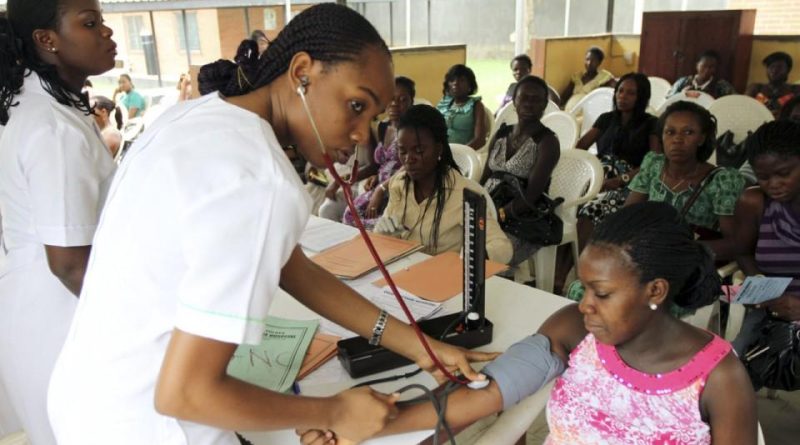More Nigerian women than men diagnosed, treated for hypertension — NDHS
The 2024 Nigeria Demographic and Health Survey (NDHS) has shown that more Nigerian women than men have been diagnosed and treated for hypertension, commonly known as high blood pressure.
The newly released national survey, which examined blood pressure diagnosis and treatment among Nigerians aged 15 to 49, shows that 52 per cent of women have ever had their blood pressure measured by a doctor or other health care worker, compared to 32 per cent of men.
Among those tested, eight per cent of women and five per cent of men reported being told by a health professional that they have high blood pressure or hypertension.
Health experts consider hypertension as one of the leading risk factors for cardiovascular diseases, which remain a major cause of death globally and in Nigeria.
The condition often develops silently and can lead to stroke, kidney disease, or heart failure if untreated.
Treatment, medication use
The report further reveals that among women diagnosed with hypertension in the past 12 months, 72 per cent were prescribed medication to control their blood pressure, while 54 per cent were currently taking the prescribed medication.
Among men diagnosed in the same period, 69 per cent were prescribed medication, and 51 per cent reported taking it.
Hypertension globally and nationally
At the 80th United Nations General Assembly (UNGA), the World Health Organisation (WHO), in collaboration with Bloomberg Philanthropies and Resolve to Save Lives, launched the second Global Hypertension Report.
The 2024 report revealed that 1.4 billion people worldwide were living with hypertension, highlighting the urgent need for stronger global action on prevention and treatment.
According to WHO, only 28 per cent of low-income countries have all WHO-recommended hypertension medicines readily available in pharmacies or primary health facilities.
This contrasts 93 per cent of high-income countries, highlighting the inequality in access to essential treatment.
In September, PREMIUM TIMES reported on the findings of the global report, which called on governments to strengthen national hypertension control programmes and ensure equitable access to care.
At the national level, the Nigerian Hypertension Society (NHS) warned that treatment coverage remains alarmingly low.
In a statement marking World Hypertension Day in May, the Society’s President, Simeon Isezuo, disclosed that only about 10 per cent of Nigerians living with hypertension are currently receiving treatment for the condition.
In June 2025, the Nigerian government raised concerns that many cases of hypertension in the country remain undiagnosed, adding to the country’s rising burden of non-communicable diseases.
Speaking at the 25th Annual Scientific Conference and General Meetings of the Nigerian Hypertension Society in Abuja, the Special Adviser to the President on Health, Salma Anas, noted that “nearly one in three Nigerian adults has hypertension, yet many are unaware of their condition.”
About the national survey
The national survey, implemented under the Federal Ministry of Health and Social Welfare by the National Population Commission (NPC), provides comprehensive data on population health indicators across the country.
It examines key issues such as maternal and child health, nutrition, infectious diseases, and non-communicable conditions, including high blood pressure.
READ ALSO: Health group extends free medical care to over 2,500 residents in Edo, Delta states
The 2023–24 NDHS was funded by the Government of Nigeria, the United States Agency for International Development (USAID), the United Nations Population Fund (UNFPA), the United Nations Children’s Fund (UNICEF), and the Global Fund to Fight AIDS, Tuberculosis and Malaria.
Technical assistance was provided by Inner City Fund (ICF) through The DHS Programme, a USAID-funded project that supports the implementation of population and health surveys in countries worldwide.
The World Health Organisation (WHO) also offered technical support.

